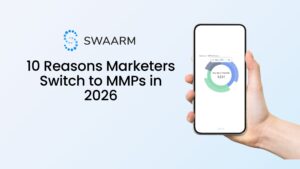What Is Search Arbitrage?
Search arbitrage is a digital marketing strategy where advertisers purchase low-cost traffic and redirect it to monetized landing pages that generate higher revenue per click. The goal is simple: buy traffic for less than what you earn from it.
Typically, marketers send users from platforms like TikTok, Facebook, or native ad networks to search-engine–style pages powered by feed providers such as System1, Tonic, or Domain Active. These feeds serve ads that pay per click, creating an opportunity for margin-based profit.
While search arbitrage has been around for years, it continues to evolve alongside changes in traffic sources, feed providers, and keyword trends—making it a dynamic and viable performance strategy in today’s market. For those willing to constantly test, analyze, and adapt, it can serve as a long-term revenue stream rather than just a short-term opportunity. Staying ahead of trends in bidding strategies, compliance, and audience behavior is key to maintaining a competitive edge.
How Search Arbitrage Works?
At its core, search arbitrage follows a simple funnel:
- Traffic Acquisition
Low-cost users are acquired through paid ad platforms like Meta Ads, TikTok, or Taboola. - Landing Page or Intermediary Funnel
The user is redirected to a landing page that mimics a search engine experience—often showing “sponsored search results” that are monetized through a feed provider. - User Interaction and Revenue
When a user clicks on one of these search results, the marketer earns revenue—ideally more than what they paid to get the user to that page. - Optimization
Over time, campaigns are fine-tuned by analyzing performance metrics such as click-through rate (CTR), effective cost per click (eCPC), and return on investment (ROI).
Why Marketers Are Using Search Arbitrage?
- Scalable and Data-driven
With the right setup, search arbitrage allows marketers to scale campaigns quickly by testing different traffic sources, devices, GEOs, and keywords. - No Product Needed
Unlike affiliate marketing or e-commerce, search arbitrage doesn’t require a product, store, or checkout process. It’s entirely traffic- and monetization-based. - Fast Feedback Loops
Because performance data comes in almost instantly, marketers can make rapid decisions on which campaigns to scale or cut.
Common Challenges in Search Arbitrage
Search arbitrage can be highly profitable, but it’s not without its risks:
- Tight Margins
Success often hinges on pennies. A slight increase in traffic cost or decrease in feed payout can impact profitability. - Policy Compliance
Ensuring your ad creatives, landers, and funnels meet the policies of both traffic sources and feed providers is essential to avoid bans or de-monetization. - Market Volatility
Arbitrage is sensitive to CPC trends, advertiser demand, and even seasonal changes.
That’s why using a powerful tracking platform—like Swaarm—can help optimize and safeguard performance at scale.
High-Monetization Niches in 2025
In the last few months, several verticals have emerged as particularly profitable due to strong advertiser demand and high search ad payouts:
- Insurance (e.g. car, health, life)
- Loans & Credit Cards
- Legal Services
- Home Improvement
- Online Education & Certifications
- Cryptocurrency & Financial Tools
These niches have consistently shown high cost-per-click (CPC) values, making them attractive targets for arbitrage marketers.
Tools and Technologies That Support Arbitrage
To succeed in search arbitrage, marketers often rely on:
- Traffic platforms like TikTok Ads, Meta Ads, Taboola, Outbrain
- Feed providers such as System1, Tonic, Sedo
- Tracking solutions like Swaarm to analyze click performance, ROI, and attribution
- Automation tools that adjust bids and budgets in real time based on data
Final Thoughts
Search arbitrage continues to be a valuable and innovative strategy for performance marketers. By understanding its mechanics and staying current with high-converting niches, marketers can build scalable campaigns with minimal infrastructure.
Whether you’re exploring new ways to monetize traffic or looking to diversify your digital marketing strategies, search arbitrage offers an accessible and potentially lucrative model—especially when paired with a robust tracking platform like Swaarm.



